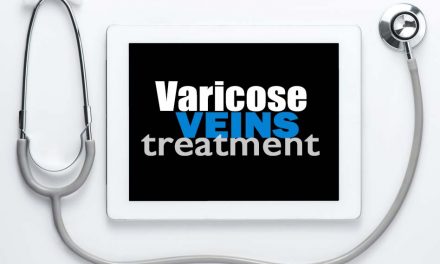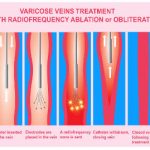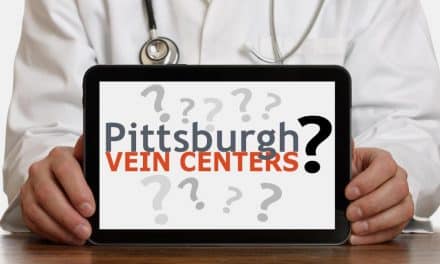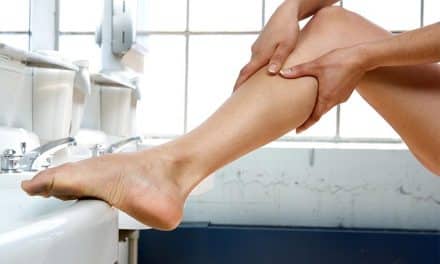
12 Hidden Secrets to Find the Best Varicose Vein Center in Pittsburgh

The Definitive Guide to Finding a First Class Varicose Vein Center
The article you’re about to read is a step-by-step advanced guide to help you find the best varicose vein center in town.

If you apply it, you will be able to rid yourself of your unwanted varicose veins and obtain superior results with the least risk and the fewest treatments.
This is an advanced vein guide written by a vein authority who has been specializing in the field of venous disease for over thirty years.
I am a vascular surgeon and a vein doctor. Varicose veins are my niche.
I’m going to tell you how to find a vein center.
Not just any vein center. You can do that yourself on a Google search and find oodles of choices.
I’m going to help you find a really great vein center.
This is a simple guide to find the “greatest of all time” vein center.
The acronym for this is G.O.A.T.
Mohammed Ali often referred to himself as “the greatest” or the ”greatest of all time”. His wife tried to market this in 1992. She started GOAT (Greatest of All Time) Inc. which changed its name to Mohammed Ali Enterprises. It was acquired by Authentic Brands Group.
Michael Phelps, Usain Bolt, Michael Jordan, Mario Lemieux, and Jack Nicholas are modern examples of this concept in the sports world.
Why can’t people find the best vein center (G.O.A.T) on their own?
Why do many people get crappy results after their varicose vein treatments?
Because they don’t know the right steps to follow.
Let’s find out how to research the best vein center in your town.
Here we go.
Top 12 Secrets to the Find the Very Best Vein Center Where You Live
Secret Number 1 – The biggest secret is this first one. Look at your financial costs closely.
Hospital’s and hospital owned practice’s outpatient and inpatient facilities have outrageous hidden costs!
These hidden costs are called “facility fees.”
Vein centers and doctors who have sold their practices to a hospital will charge you more.
It’s a hidden fact.
The Kavic Laser & Vein Centre remains an independent practice devoted entirely to the treatment of veins.
Since we did not sell our practice to a hospital, there is no extra facility fee.
When you have your procedures done in our accredited vein center, there is never a facility fee.
It will cost you 3-4 times less at our vein center than if you went to St. Clair Hospital’s outpatient center, a UPMC outpatient or inpatient facility, an Allegheny Health Network outpatient or inpatient facility, Shadyside Hospital, Magee-Womens Hospital of UPMC Hospital Vein Center, or to a Washington Hospital practice that was bought out.
Would you rather have a bill of $2,500 or less (with us) or up to $10,000 (with these expensive overpriced hospital outpatient facilities that aren’t even accredited).
That’s because of the way that a hospital bills.
They bill the physician component separately from the facility component.
The facility fee that hospital owned vein practices charge is very expensive.
A hospital’s outpatient facility component is much higher (thousands of dollars) more than insurance companies allow for doctor’s offices (zero)!
Unlike these expensive facilities owned by hospitals, the Kavic Laser & Vein Centre is the only accredited vein center in all of Pittsburgh!
Be very careful.
Many vein centers owned by hospitals charge more for their services (translated-facility fees) than other centers.
Before you make an appointment for your first initial consultation, ask for an estimate.
Know ahead of time what your deductible is for your health insurance.
Know what co-insurance is before you consider having your veins treated. Co-insurance is not the same as your co-pay.
Some varicose vein treatments may not be covered by your health insurance.
Inquire about the specifics of your plan and the facility costs.
Realize that insurance rarely covers the entire cost of varicose vein treatments.
Make sure the vein center that you plan on having treatments participates in your health insurance plan.
Ask about payment plans.
Secret Number 2 – Beware of free screenings.
The list of approved screenings by medical organizations is well established.
Examples of diseases that are approved for screening include high blood pressure, diabetes, cholesterol screening, mammograms for breast cancer, colonoscopies, and PAP smears.
Veins are not proven to be worthy of screening.
The cost of screening for vein problems does not justify the benefits.
Here is the list of approved screening programs.
Veins are not on the list.
Doctors who advertise free screenings are using an unethical marketing tactics in the guise of a medically proven need.
The real reason that vein centers advertise free screenings is to bring more potential patients into the practice.
It’s sort of like a salt lick to draw in deer to a hunter or chumming the water when going deep sea fishing.
You get the idea.
Secret Number 3 – What are the vein doctor’s qualifications?
Many doctors who are treating veins have no venous training at all.
They learned how to treat veins at a three-day weekend course or online.
Really, they actually learned how to treat varicose and spider veins online!
Really research the qualifications of the doctor who will treat you.
- Where did they train?
- In which specialty did they train?
- How many procedures have they actually done?
- How long have they specialized in treating venous disease?
- Did they switch from another specialty (possibly where they were burned out)?
What are they actually board certified in?
Just accepting that a doctor is board certified is not enough. If they specialized in pathology or proctology or ear, nose and throat disorders would that be OK with you?
Would you want a foot doctor to operate on your heart?
The question arises – why can untrained doctors treat venous disease and varicose veins?
Legally, any MD or DO can do neurosurgery and heart surgery.
What prevents doctors from practicing and operating outside of their specialty are hospitals.
Hospitals have credential committees to prevent this kind of thing from happening. Untrained surgeons cannot get privileges in a hospital unless they are credentialed.
Varicose vein disease management took a sudden turn in 1999 when minimally invasive endovenous (laser) technology hit the scene.
Surgeons were no longer the only ones who could treat varicose veins. Before that, the only treatment was stripping veins.
When it comes to an office setting (where all vein procedures are now done), all bets are off.
There are no credentials committees to protect you by checking the qualifications for vein doctors now that the treatments are done in the office setting.
In 1999, the new technology was so disruptive, that it caused a paradigm shift in the treatment of varicose veins.
Now even chiropractors are getting into varicose vein treatments.
Many DCs are already offering therapeutic laser services for wound healing and pain relief. Adding varicose vein treatment may simply make good financial sense to them, as the laser hardware is already available. Would you let a chiropractor treat your veins?
Varicose vein treatment is a highly specialized field in medicine.
The most qualified specialists who treat varicose veins are vascular surgeons.
Physicians in other non vascular specialties often refer to themselves as phlebologists.
The simple fact is that the only specialty (recognized by the American Board of Specialties) where the treatment of venous insufficiency is part of an established curriculum – is vascular surgery.
Stripping of veins has been replaced.
Less invasive procedures such as laser and radiofrequency Closure have replaced it.
Despite these advances, some patients cannot benefit from the newest technology.
Knowing when to do a procedure and when not to do a procedure is part of a vascular surgeon’s training.
Surgical judgement is key to success on which patients can benefit from which procedures. Vascular surgeons are also trained to use conservative care when indicated. That judgement is not innate. Surgeons are best equipped from their training on how to use their judgment to determine which patients are candidates for venous procedures.
Google your vein doctor.
This is really important.
Often self proclaimed vein doctors (also called phlebologists) don’t have a large enough digital footprint on their profiles on physician rating sites.
Look at Healthgrades.com and Vitals.com to learn more about your vein specialist. You can get a sense of their true board specialty and where they trained. A vein specialist’s LinkedIn profile is helpful. It will contain their full CV.
Secret Number 4 – Choose a board certified for your vein doctor.
Nowadays, a conglomeration of independent and franchised vein clinics are opening their doors all across the country.
Although these vein centers advertise the treatment of varicose veins, many of them are staffed by physicians who have not specialized training in vascular surgery.
Even though minimally invasive techniques have improved the treatment of varicose veins, hands-on skill of an experienced vascular surgeon is important for optimum results.
Vein stripping has been replaced by minimally invasive procedures. Laser vein surgery is one of the new options. These procedures have revolutionized the treatment of varicose veins.
Treatment skills and decision making are vascular skills are taught during a vascular surgery fellowship. The treatment of veins is a highly specialized field of vascular surgery taught during fellowship training.
Medical expertise in determining which veins to treat and which method will give the best results are part of the vascular surgeon’s armamentarium.
Surgical knowledge and experience are still essential in choosing the correct locations and technique for the elimination of varicose veins. It may appear logical that all doctors have learned how to manage patient disease states during their training. It requires expert judgment to decide which patients are candidates for vein procedures.
Vascular surgery is a subspecialty.
Venous disease is an integral part of a vascular surgeon’s training.
Secret Number 5 – Avoid vein franchises.
Franchises are in business to profit from their patient’s diseases.
What is a franchise’s mission?
Read this link about varicose vein doctors and their franchises to understand more about how entrepreneurial vein chains really work.
Businessman run hospitals and health insurance companies. Doctors are pressured to make a profit.
It would seem natural that doctors would embrace the entrepreneurial spirit and expand the care of veins into a business model.
Once the care of veins becomes a business, the exploitation of unsuspecting patients is often a natural consequence. Profits at any expense is the natural progression.
This is done by performing unnecessary venous testing and unnecessary vein procedures.
This problem has been discussed best in this roundtable article from Vein Magazine.
Secret Number 6 – Choose only a vein center that has been inspected and is accredited.
This is extremely important.
Remember I said that vein care has moved out of hospitals.
Hospitals are inspected.
Vein centers are not required to be inspected.
Whaaat?
Vein centers should be inspected just like restaurants, cars, roller coasters, jet airplanes, and hospitals.
Accreditation is part of the inspection process.
Unfortunately, at the present time, accreditation of vein centers is completely voluntary.
In the future, just like hospitals, vein centers will require accreditation for safety and quality.
Secret Number 7 – Choose a vein center and vein doctor with the longest experience.
Merriam Webster’s definition of experience is the skill or knowledge that you get by doing something.
Experience serves as the basis of knowledge.
Experience is practical knowledge from the direct participation in performing procedures.
A vast experience with thousands of vein procedures and the doctor personally performing venous ultrasound on patients with venous disease will increase your chances of getting a great outcome.
Never underestimate the experience of either the vein doctor or vein center.
Secret Number 8 – Intangibles are the basis of word-of-mouth.
The way that you feel after leaving an office is hard to measure.
Internet consumer reviews are the next best thing to word-of-mouth recommendations from a friend or a family member.
In medicine and in life, sometimes the feeling that you get from the doctor’s office is the most memorable part of the experience.
Even the best results can be ruined by a rude, uncaring, or disrespectful doctor or staff member.
The smile that you get when you arrive for a visit or the positive energy that you feel after interacting with the people in the office are extremely important.
Doctors are rarely sued by when a patient thinks that the doctor was “nice” even if there was a bad outcome.
The time you save not having to wait long or at all in the waiting room is also a valuable intangible quality.
Once you find the right mojo in the varicose vein office that you finally choose, you know that you are in the right place.
Treatment by the same person every time that you come to a vein office is equally as important. Not being switched from provider to provider is important to most people.
You don’t deserve to be treated like a number or with a formula developed by a computer. Your treatment plan must be individualized since vein disease is so variable.
You must be included in the loop of the decision making process. That is truly personalized vein care.
Secret Number 9 – Doppler qualifications (RVT and RPVI) are very important.
Ultrasound is essential in the diagnosis and treatment of varicose veins and venous disease. Your vein doctor must be proficient in performing ultrasound or Doppler.
The highest qualifications include those of a registered vascular technician (RVT) and the interpretation of vascular ultrasound (RPVI).
Look for those important credentials in a vein specialist.
Make sure the physician treating your veins has the knowledge, mastery and is experienced in vascular ultrasound.
It is imperative that your vein specialist is qualified and certified in vascular ultrasound.
Secret Number 10 – Reviews on the web are helpful.
An important way that you can look for vein specialists to treat your varicose veins and spider veins is to look at reviews on consumer sites like Google or YELP.
People often review services and places from hotels, resorts, and restaurants. Medical and dental professionals can be reviewed the same way.
It is helpful to get a sense of how people have felt after their vein treatments. An overall sense of reliability, competence, and ethical behavior can be discerned from reading reviews about a vein practice.
The best sign is a preponderance of either good or bad reviews happening over the course of years.
It’s important to read reviews carefully to get a general feel for the vein center.
Secret Number 11 – Examine your vein doctor’s motivation and ethics.
I’ve discussed varicose vein center ethics in the past.
Honesty, integrity and morals practicing vascular surgery and treating venous disease is crucial.
How can you be sure that your doctor has your best interest at heart?
Like any profession, there are bad actors. Medicine is no different.
You read about Medicare fraud involving doctors all of the time.
You don’t want to believe that it could happen to you.
The incentives to rip off unsuspecting patients are huge. Examples are commonly seen with heart stents, back surgery, CT and MRI scanning, and PAP smears.
I recently saw a television show on CNBC called American Greed about an oncologist, Dr. Fata, in Michigan. He was convicted of needlessly treating Medicare patients with chemotherapy whom he knew did not have cancer. He was convicted and sentenced to 45 years in prison.
Financial forces largely hidden from the public can corrupt care.
The highest reimbursed fields of medicine, invasive cardiology, neurosurgery and orthopedic surgery, are particularly susceptible.
Why?
Doctors are largely reimbursed by their volume of procedures.
Likewise, vein procedures are also reimbursed by their volume.
Financial decisions can impair the judgement of susceptible doctors and create a moral dilemma.
“Trust but verify” was a famous quote by Ronald Reagan that we should all keep in mind when choosing a doctor in our increasingly profit-driven world.
Thankfully, in the end, most doctors truly want the best for their patients.
Secret Number 12 – Don’t go to the vein center that advertises.
Would you choose your neurosurgeon, urologist or gynecologist based on advertisements that you saw on TV or heard on the radio?
Of course not.
The deplorable thing is that advertising works. You have to ask yourself – why does that vein center need to advertise in the first place?
- Are they just starting out?
- Are they a franchise that is trying to make as much money as possible to keep expanding as entrepreneurs do?
- What is their real motivation for advertising?
Let that sink in for a moment.
The biggest franchise in my town advertises that 95% of veins are covered by insurance. That is not true. According to Dr. Ronald Bush MD, the director of Veinexperts.org, 80% of patients who present to a vein center have cosmetic veins which are not covered by insurance.
That means that when patients present to a vein center expecting that insurance will cover their veins, many will be disappointed because they were given false information.
That boils down to false advertising.
Conclusion
You want the GOAT (greatest of all time) varicose veins center.
It is an exclusive club.
The qualifications to meet all of these prerequisites makes any vein center quite extraordinary.
Being called the goat is contradictory to the accepted nuance to this derogatory term, goat.
You have to do your own research to discover for yourself that we meet all of the above strict requirements.
We have described a dozen qualifications for the GOAT vein center in your city.
Call us at 724-987-3220 or learn more here in order to discover the greatest of all time vein center in Pittsburgh.








